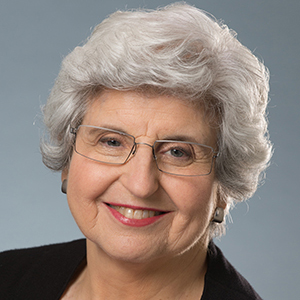That is what’s at stake here: our lives. Our right to abortion care and ability to access it is about our health, the well-being and future of our families, our autonomy and our dignity. Ultimately it is about our ability to be equal.


That is what’s at stake here: our lives. Our right to abortion care and ability to access it is about our health, the well-being and future of our families, our autonomy and our dignity. Ultimately it is about our ability to be equal.

Sometimes the world changes in a moment. One of those moments came when Justice Anthony Kennedy announced his retirement.

If we want to make sexual harassment a rarity, changing the law is important, but not sufficient. We also have to change the culture.

Those of us who have spent our careers fighting discrimination in all its forms have been deeply concerned by reports of bias by Airbnb hosts, and allegations that Airbnb’s platform might have helped facilitate some of the discrimination.

Mother’s Day is this weekend. And at the National Partnership, we have joined with our allies, members of Congress and activists across the country to take a week-long look at what mothers truly need this year – beyond messages of gratitude.

We can – and will – continue to make progress toward a more fair and family friendly nation by winning the fight for policies like the FAMILY Act. But it’s going to take hard work. And we must all become advocates.

Jersey City Mayor Steven Fulop signed the nation’s seventh paid sick days law, securing the city’s position as a leader for working families and bringing us closer to the day all workers have the right to earn sick days.

It has been 93 years since women gained the right to vote. A lot has changed in those years.

Today, I had the honor of testifying before the U.S. Equal Employment Opportunity Commission (EEOC) on a topic of critical importance to our nation’s workers: employer wellness programs.

Four years ago today, President Obama signed the Lilly Ledbetter Fair Pay Act – a law that restored pay discrimination victims’ right to have their day in court.

The Affordable Care Act is the greatest advance for women’s health in a generation, and tomorrow one of its promises becomes reality for millions of women, who will be healthier and better off as a result.

This week, we saw deeply troubling evidence of just how partisan Congress has become.

Today, I was honored to join a distinguished group of scholars, advocates, government officials, and legal and policy experts to discuss an issue of critical importance to working women and families in this country: discrimination based on pregnancy and caregiving.

Thirty years ago today, women and girls in every corner of the country watched with pride as Sandra Day O’Connor raised her right hand, took an oath and became the first woman justice on the Supreme Court.

Momentum and support for paid sick days policies in this country are growing like never before.

Today, the Supreme Court ruled that the women of Wal-Mart cannot proceed as a group as they challenge the company’s discriminatory pay and promotion practices. It was a disappointing day for the women involved in the case and for all of us who are fighting for fair pay and fair opportunities for advancement for America’s women. But today’s decision is not the end.

This week is the first anniversary of the Affordable Care Act – the greatest advance for women’s health in a generation.

It’s a fact: Contraceptive use improves overall health. It enables women to plan and space their pregnancies. It has contributed to dramatic declines in maternal and infant mortality. And it has been a driving force in reducing unintended pregnancies and the need for abortion.

It’s the first Monday in October, and the Supreme Court convenes today for a new term. But this term is different from all others because, today for the first time ever, three women are serving together on our highest court. It is significant — momentous — that one-third of the Court is female, even though that fraction does not yet represent our proportion of the population. But it is a sign of progress that was once almost unimaginable for me and most of my peers.

Earlier this month, I was invited by the White House to watch President Obama nominate Solicitor General Elena Kagan to serve on the Supreme Court. The ceremony was even more moving than I expected, and that took me a little by surprise.